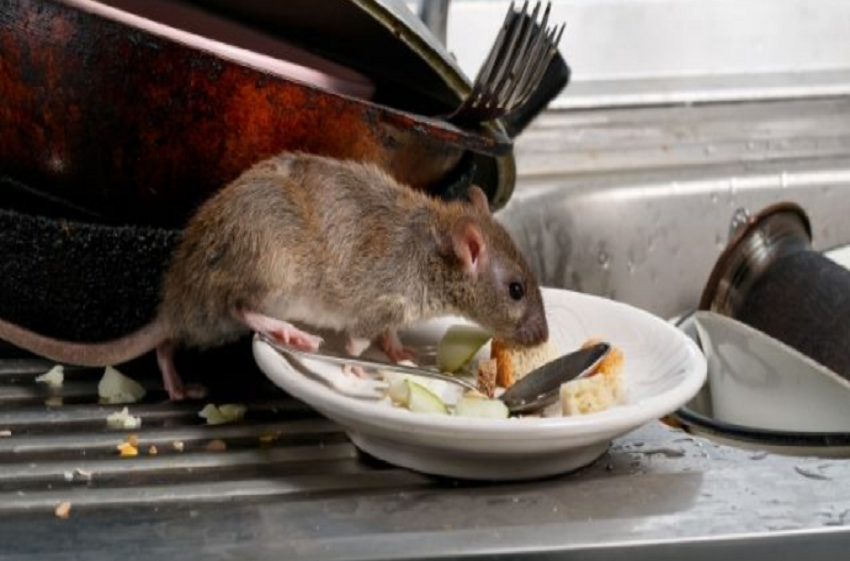
Rat Bite: Do Rats Really Attack You?
Many people believe rat bites belong in the darkest of nightmares, alongside losing your wallet or facing a tax audit.
The question is, do rats really attack people, and how can you protect yourself?
The reality can surprise you. Although rat bites do happen, they’re not as common as you think. This is where expert rat control companies are essential in preventing these unwanted encounters.
Let’s explore the reality behind rat bites and how to protect your home from these invaders.
Understanding Rat Behaviour Towards Humans
Rats generally prefer to avoid humans rather than attack them. Naturally wary, these creatures would rather stay out of sight.
Unlike larger animals that can be territorial or aggressive, rats typically flee when they sense danger. They scavenge at night, quietly moving through walls and hidden spaces, aiming to remain unnoticed.
The common belief that rats actively hunt and bite humans is unfounded. However, there are situations where a rat bites.
If they feel scared or cornered, they react defensively. For instance, if you accidentally disturb a rat’s nest or try to handle one without caution, you get bitten. Rats also bite if startled while searching for food. However, these incidents are rare.
They usually occur in extreme circumstances, such as homes with severe infestations or where food is left out for long periods.
Most rat bites happen when someone attempts to touch or trap a rat. This is one of the many reasons why relying on trustworthy rat control services is crucial.
Their proper equipment and knowledge allow them to safely manage infestations, therefore avoiding the risks connected with DIY solutions.
Immediate Actions After a Rat Bite
If a rat bites you, you should tend to the wound right away since they can carry risky diseases. Their bites, usually puncture wounds, don’t seem severe at first but, if not properly treated, can lead to severe infections.
Though rare, rat bites spread diseases, such as rat-bite fever, leptospirosis, and even some forms of plague.
If you’re bitten, immediately wash the wound with soap and water to remove any bacteria or toxins. Then, apply an antiseptic after cleansing and cover the area with a fresh bandage.
See a doctor, especially if the bite turns red, swollen, or painful, since that indicates an infection. Sometimes, antibiotics are required to prevent new problems from emerging.
Though a rat bite is frightening, most cases heal entirely with appropriate care. Nevertheless, taking action prior to a rat infestation becoming a major issue is the surest strategy to prevent such events.
Protecting your home from these rodents depends heavily on qualified rat control companies.
The Role of Professional Rat Control Companies
Many homeowners are unsure about the appropriate strategy for handling rats.
Some try installing traps or sealing entry points themselves. However, these methods often overlook more important issues, such as how the rats are entering or whether the infestation has been completely eradicated.
This is where expert rodent control firms excel. Before taking steps to ensure rats never return, these experts assess the situation by examining how the rats are entering your property and where they’re nesting.
They locate every potential entry point, which could be as small as a coin, through a comprehensive inspection.
One of the primary advantages of hiring specialists is the ability to access advanced equipment and treatments that are not available to the general public.
Professional rat control companies bring the resources needed to handle even the toughest infestations. This includes industrial-strength traps or potent rodenticides that make even the bravest rats think twice.
Depending on the situation and local regulations, they can also use relocation strategies. Preventing future infestations is just as important. Thus, experts will offer guidance on rat-proofing your property after the rats have been removed.
This can involve repairing damaged vents, sealing wall cracks, or landscaping adjustments, such as pruning overhanging branches that rodents use to access your roof.
Why Rat Infestations Lead to More Bites
A lone rat is unlikely to bite if it’s not provoked, but with an infestation, the chances of being bitten increase dramatically.
When they’re crowded and reproduce rapidly, rats are more likely to show hostile behaviour. They’re more inclined to bite and act aggressively in crowded places in response to supposed dangers. Additionally, rats exhibit an increase in their assertiveness when they’re denied nutrition.
This is especially risky in homes where food is left out or rubbish is not properly secured. Infested rats moving around the house more often increase the risk of accidental encounters.
For example, a rat can be hidden in a cupboard or sprint across the floor when someone enters the kitchen, surprising both the person and the rodent. This increases the risk of a defensive bite.
This point of infestation increases the chance of major house damage and compromises your health. Rats gnaw through wood, insulation, and wires, posing a fire hazard and requiring costly repairs.
Once again, the expertise of rat control companies is essential to stopping infestations before they become dangerous.
How to Avoid Rat Bites and Infestations
As prevention is always better than a cure, stopping a rat invasion and the risk of bites requires several actions.
Begin by keeping your home neat and tidy. Rats are attracted to food sources, so ensure all food is stored in sealed containers, and spills are cleaned up promptly.
Regular rubbish disposal is also essential, so fitting snug lids on bins will help prevent rat access. Another important step is to seal potential entry points. Rats can squeeze into spaces as tiny as half an inch.
Therefore, make sure to check the areas surrounding your doors and windows for any signs of damage. Hence, it’s sensible to fix any damaged vents or screens.
Contact a professional rat control company without delay if you see rat droppings or gnaw marks or if you’re in a region prone to infestations. They can assess the risk and take early action to prevent it.
Conclusion
Although the very idea of a rat bite is rather disturbing, rats generally don’t set out to attack people in the first place.
Nonetheless, as infestations grow, accidental encounters and bites become more frequent. Especially if the rodent feels cornered and scared. Whether you maintain a tidy home or use expert rat control, acting quickly will help prevent these risks.
Remember, preventing an infestation is far easier than dealing with the aftermath. Don’t wait if you suspect rats are present on your property. Act swiftly and let the experts take care of it for the best results.


